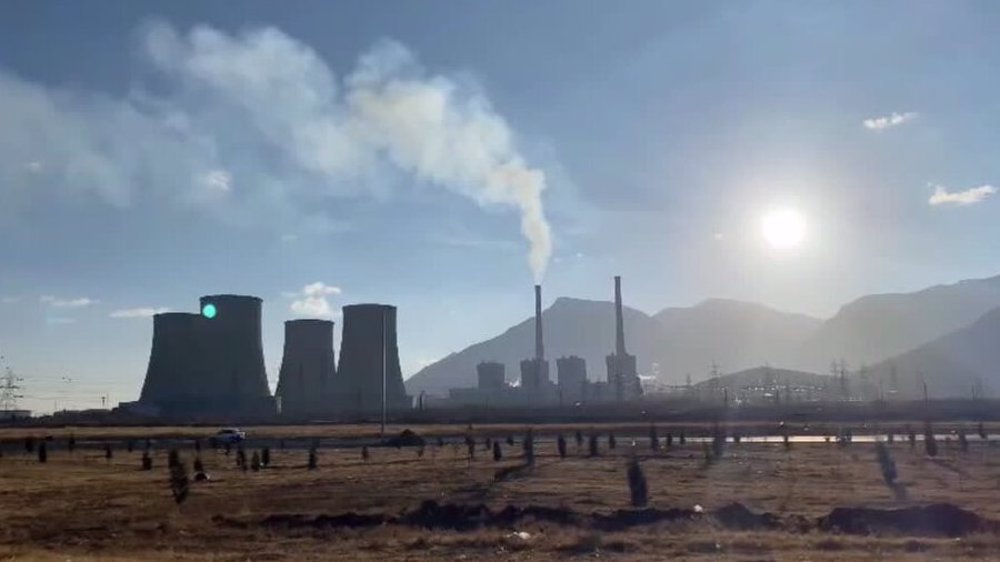US sanctions Russia, Iran firms for Syria oil sales
The US government says it has sanctioned Iranian and Russian companies for shipping oil to Syria which is fighting terrorist groups, mostly backed by the West and its allies in the Middle East.
Treasury Secretary Steven Mnuchin said in a statement Tuesday that three Russian companies, including a subsidiary of the Ministry of Energy, an Iranian company and five individuals were being targeted.
The US accused them of “illicitly” shipping millions of barrels of oil from Iran to Syria, without saying what was illicit about it.
The sanctions, US administration officials said, were aimed at cutting off oil sales to the government of President Bashar al-Assad, leaving out citizens and not saying how choking off oil shipments would not harm ordinary people.
“Today we are acting against a complex scheme Iran and Russia have used to bolster the Assad regime and generate funds for Iranian malign activity,” Mnuchin said.
He accused Central Bank of Iran officials of exploiting the international financial system “to facilitate financial transfers supporting this oil scheme”.
According to the US Treasury statement, Iran’s central bank had used Russia-based Mir Business Bank, Global Vision Group and Promsyrioimport to pay for Iranian oil to be exported to Syria.
Russia has defended its trade with Iran and Syria as complying with United Nations. Promsyrioimport said on its website that its focus is the “implementation of state energy policy”, helping with deliveries of Iranian oil, starting last year.

On the request of the legitimate Syrian government, Iran has sent military advisers who have helped drive out terrorists and foreign-backed militants from much of the country.
The US, instead, has been carrying out airstrikes without Syria’s permission or a UN mandate, which have damaged the country’s infrastructure and killed many civilians.
The United States has also deployed troops and heavy weapons into northern Syria, training and arming Kurdish militants under the pretext of fighting Daesh.

US operations in Syria have frustrated not only Syria and Russia but Washington’s key ally in the region, Turkey. They say US actions are anything but a war on terror and believe Washington has ulterior motives behind its military presence.
Many of Syrian oil and gas fields have been damaged by terrorists and some of them have been seized by militants backed by the US.

In 2014, Syrian Oil Minister Suleiman Abbas said Syria's oil and gas industries had suffered total losses of $21.4 billion since the outbreak of the country's war.
Abbas said the war had caused a $3.5 billion direct loss in terms of stolen and wasted oil and gas as well as damage or theft of infrastructure, pipelines and vehicles.

In its Tuesday statement, the US Treasury issued an advisory warning shipping firms against participating in oil deliveries to Syria.
It coincided with President Donald Trump signaling that he does not plan to further sanction Saudi Arabia in response to the killing of journalist Jamal Khashoggi.
In a 633-word statement titled "America First!," Trump said the US wanted to remain a "steadfast partner of Saudi Arabia to ensure the interests of our country, Israel and all other partners in the region".
The US is also averse to helping reconstruct Syria, as is Europe. Therefore, Russia and Iran are playing a major part in that outcome.
Russia has reportedly pressed European Union governments to help foot the reconstruction bill but they have not been forthcoming.
In the US, lawmakers last year introduced a legislation which sought to channel any American aid to the parts of Syria still outside government control.
Currently, the areas under the control of Kurdish militants in the north and the last major terrorist bastion in Idlib are outside the Syrian government control.

Russia and Iran are spearheading the reconstruction campaign. Syria has agreed on 850 million euros of contracts for Russia to rebuild infrastructure, while Iran has signed accords worth "several hundred million euros" to repair power grids.
China has also indicated that there could be about $2 billion of investment at this stage. Chinese companies are eyeing projects to build roads, bridges, airports and hospitals and restore electricity and communications.
Syria fits into the Chinese strategy because of being a key link on the ancient Silk Road which is President Xi Jinping's most ambitious Belt and Road Initiative, aiming to weave a web of trade and transportation links across Eurasia and Africa.
HTS rulers name al-Qaeda operative as Syria's new spy chief
Iran voices concern about rising insecurity, violence in Syria
VIDEO | Karachi sit-in amplifies nationwide call for justice for Parachinar victims
Iran strongly condemns Israeli bombing of Yemen's civilian infrastructure
VIDEO | Press TV's news headlines
VIDEO | Israel and Iran’s Nuclear Facilities?
At least three killed as Israel bombs Sana'a airport, power plant
Palestinian children freeze to death amid Israeli carnage in Gaza










 This makes it easy to access the Press TV website
This makes it easy to access the Press TV website